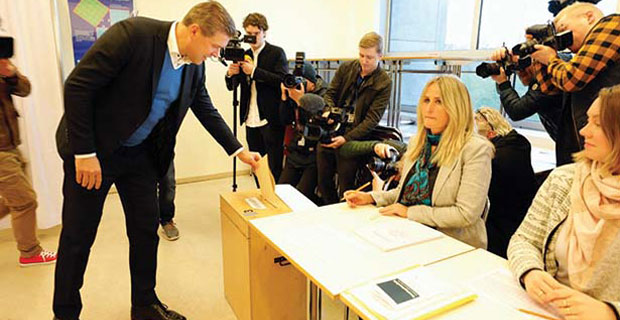Iceland’s parliamentary polls
Iceland's coalition government increased its majority by two seats from 35 to 37 in the country's 63-seat Parliament following the September 25 elections. But the results of the election left the future cabinet coalition open as the success of the coalition parties still remains uncertain, reports Xinhua news agency. Altogether eight parties were represented in Parliament.
Of the three coalition parties, the liberal-conservative Independence Party remains the largest in the country with 24.4 percent backing and 16 seats. The centre-right Progressive Party became the election winner and second largest in the coalition, increasing its support by 6.6 percentage points to 17.3 per cent and raising its seats from eight to 13.
Prime Minister Katrin Jakobsdottir's Left-Green Movement was down to eight seats from its previous 11, with 12.6 percent backing, down 4.3 percentage points. Among the opposition parties, Social Democratic Alliance, the People's Party, and the Pirates all received six seats respectively, while the Liberal Reform Party gained five and the Centre Party, three.
For the first time, the Icelandic Parliament will have more female MPs (33) than male MPs (30). Jakobsdottir said on September 26 that talks to form a government will be complicated.
The leaders of the three coalition parties said before the election that if the government prevailed, it would be the first option to discuss continued government cooperation.
Turnout of voters in the whole country was 80.1 per cent, slightly lower than the previous election in 2017.











Comments.